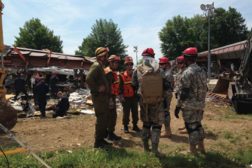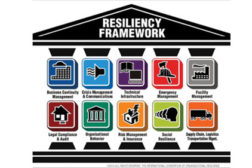Security & Business Resilience
Protecting and supporting stakeholders on a global scale through investments in security operations centers (SOCs), intelligence services and travel support companies has become a best practice for leading security programs.
Read More
How to Plan for Emergency Response Success
Just because a natural, man-made or other type of disaster has never happened within your enterprise doesn’t mean it never will
June 1, 2014
SMBs without Business Continuity Planning Miss Out on Insurance Perks
A Cloud Direct survey reports that 54 percent of respondents were unaware there were insurance benefits to having a business continuity plan.
May 1, 2014
How to Add Resiliency to Your Risk Management Strategy
The latest buzzword these days is “Resiliency,” which for all intents and purposes is really nothing more than a new term for business continuity planning (BCP) in the private sector and continuity of operations planning (COP) in the public sector.
May 1, 2014
Managing Mass Communication in Tornado Alley
Tornado Alley is a colloquial term for the area of the United States where tornadoes are most frequent.
May 1, 2014
Supply Chain Fears Increase as International Business Activity Heats Up
As U.S. and Canadian businesses plan to expand their business overseas this year, supply chain failures, data breaches and political instability are weighing heavily on the minds of their executives, according to a survey.
April 30, 2014
Sign-up to receive top management & result-driven techniques in the industry.
Join over 20,000+ industry leaders who receive our premium content.
SIGN UP TODAY!Copyright ©2024. All Rights Reserved BNP Media.
Design, CMS, Hosting & Web Development :: ePublishing








